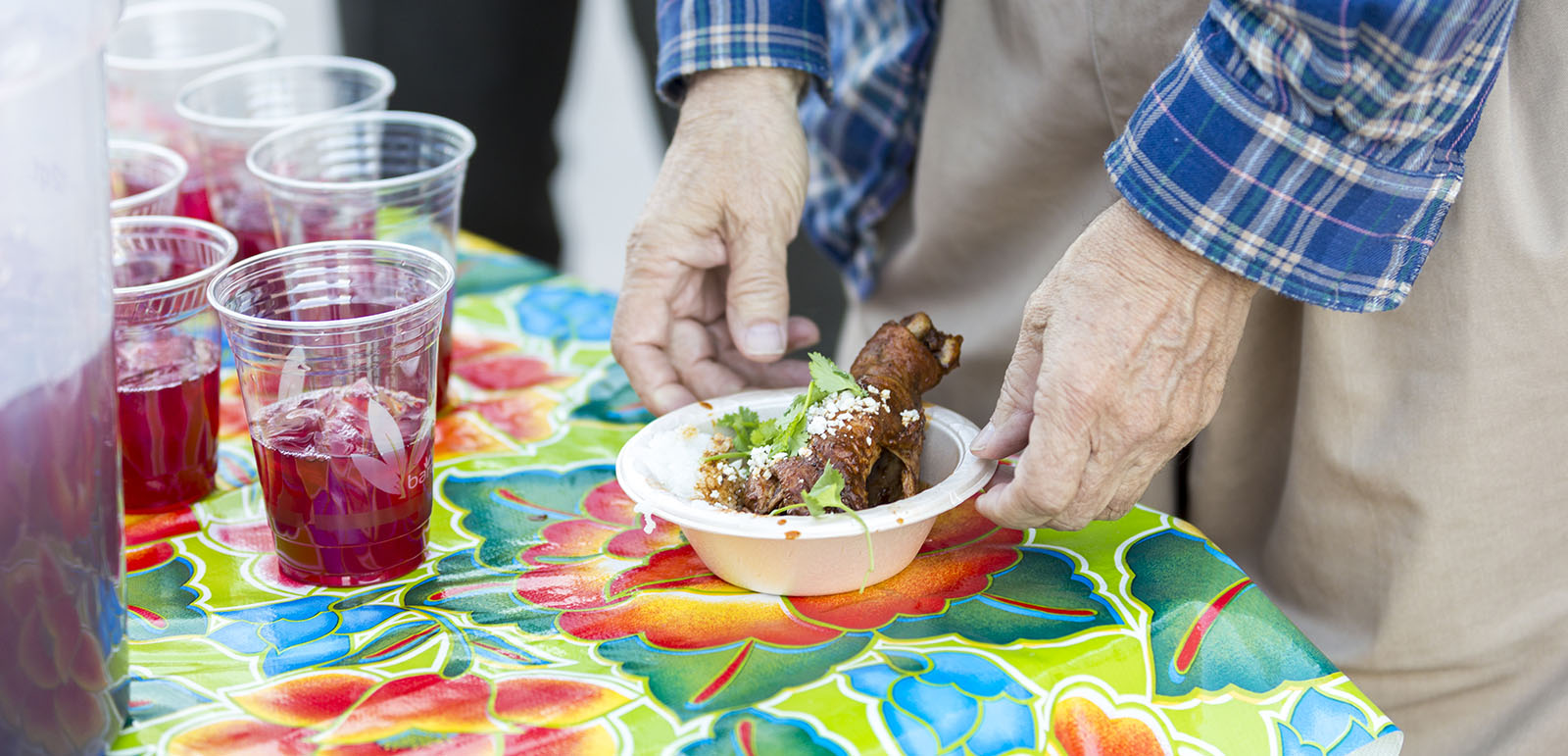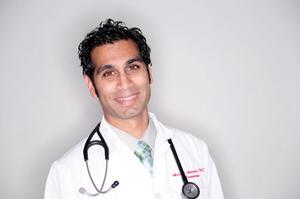Program Provides Research Opportunities for Undergraduate Students

Holiday Health
UNM Doctor Offers Tips to Curb Over-Indulgence
You can prevent feeling over-stuffed and falling into over-indulgence this holiday season. It just takes some planning before you walk into your next holiday gathering.
It’s hard enough to navigate the stressors of shopping, family and all the other holiday pressures. Add to it all the rich, delicious foods that are bound to tempt you, and you might just wreck any good eating habits you had in place, says cardiologist Abinash Achrekar, MD, MPH, vice chair in The University of New Mexico Department of Internal Medicine.
The idea of not eating breakfast in anticipation of feasting later in the day is not a good idea, Achrekar says.
For many people, the slide into unhealthy eating habits territory might have started on Thanksgiving Day. Lots of folks decide to “save room” for the big feast – but that’s not a good strategy, he says, especially because you’ll still be hungry when you wake up in the morning.

My recommendation, especially with all the great potlucks we're having, is try a little bit of everything but not too much of any one thing
“Don't starve yourself before that big dinner, because it'll just make you consume more,” Achrekar says. “But then when you finally get to that holiday event, whether it's at work or at home, choose portion size as well, and to not go back for seconds. My recommendation, especially with all the great potlucks we're having, is try a little bit of everything but not too much of any one thing.”
Keep in mind that a normal calorie intake for a day is about 2,000 calories, he says.
“If you're trying to lose weight, it's going to be less,” he says. “If you're trying to gain weight, it's going to be a little bit more and we should remember that a proper holiday dinner with all the fixings is probably going to be closing in on 1,500 to 2,000 calories in one meal.”
Achrekar treats patients with conditions such as diabetes, hypertension and high cholesterol. He explains to them that eating three, well-balanced meals is the ideal, even during the holidays, he says.
“This is also a time of the year that we see more heart attacks and strokes, partially because of the colder weather, but also because this could be a time where taking medicines is difficult,” he says. “Some individuals are battling with depression or anxiety, which can also exacerbate their chronic conditions.”
Achrekar favors tips from “Life's Simple 7,” an American Heart Association guide on how to engage in improving health.
It’s not too early to think about making resolutions in the new year to take charge of your health. The most important change to make is for smokers to stop smoking, says Achrekar, former deputy secretary of the New Mexico Department of Health.
“The first thing and absolutely the most important thing a patient can do is to stop smoking,” he says.
Other tips are:
- Maintain a healthy weight. He recommends looking up your body mass index (BMI) on a BMI calculator. “I think all patients should do that, he says.
- Engage in regular physical activity. “That's about 30 minutes of moderate to strenuous physical activity five times a week. That moderate activity could just be taking a very brisk walk for 30 minutes.”
- Manage your blood pressure. “I recommend patients know their numbers. Go to a pharmacy or to your primary care doctor or to a clinic and get your blood pressure measured,” he says. “If you don't know it's high, you're never going to treat it.”
- Know your cholesterol levels and glucose/blood sugar levels, so that physicians can help you manage high levels through diet and treatment recommendations, he says.
“Most of us have a plan when we go into any kind of situation. The situation that we're going into is a very festive holiday season and individuals are aching for human connection,” Achrekar says. “Because we've been cooped up in our homes because of the pandemic, I think (it’s wise to) have a plan of what you're eating and when you're eating it.”